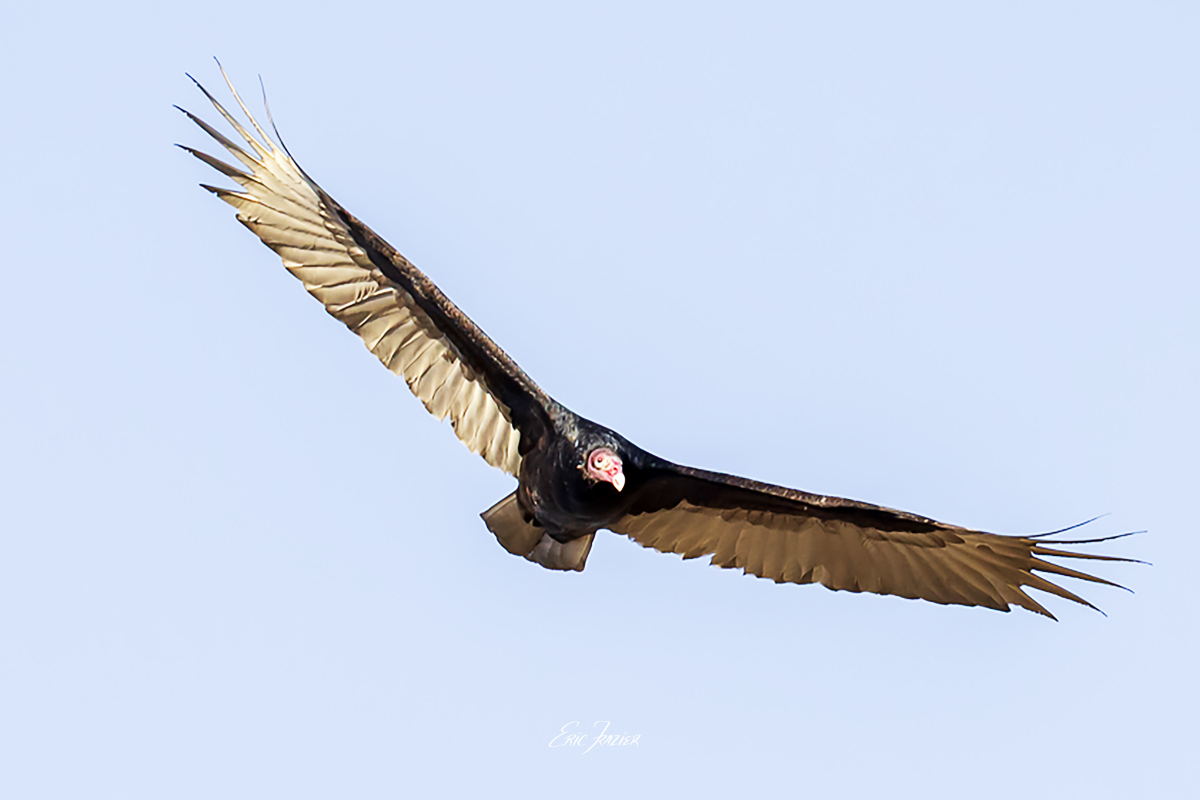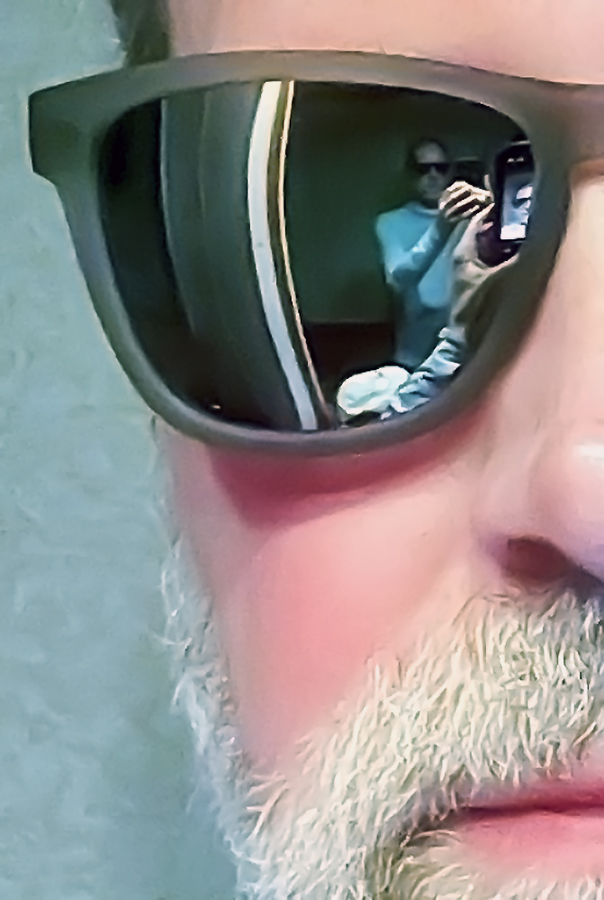During a recent walk on our community greenway, I noticed two turkey vultures circling low over one of our ponds. I had been shooting a mallard duck couple there moments before, and returned to the trail below, which runs along the base of a huge berm built to create the pond. When both vultures disappeared from view, I ran back up the hill to see what they were up to.
I had read that vultures will sometimes hunt prey when no carrion is available. But I didn’t know if they might attempt to dine on duck. Turns out, the ducks were fine, and the vultures were resting on a fence together. I began to photograph them, but their recess was brief, and one soon launched toward me, followed by the other.
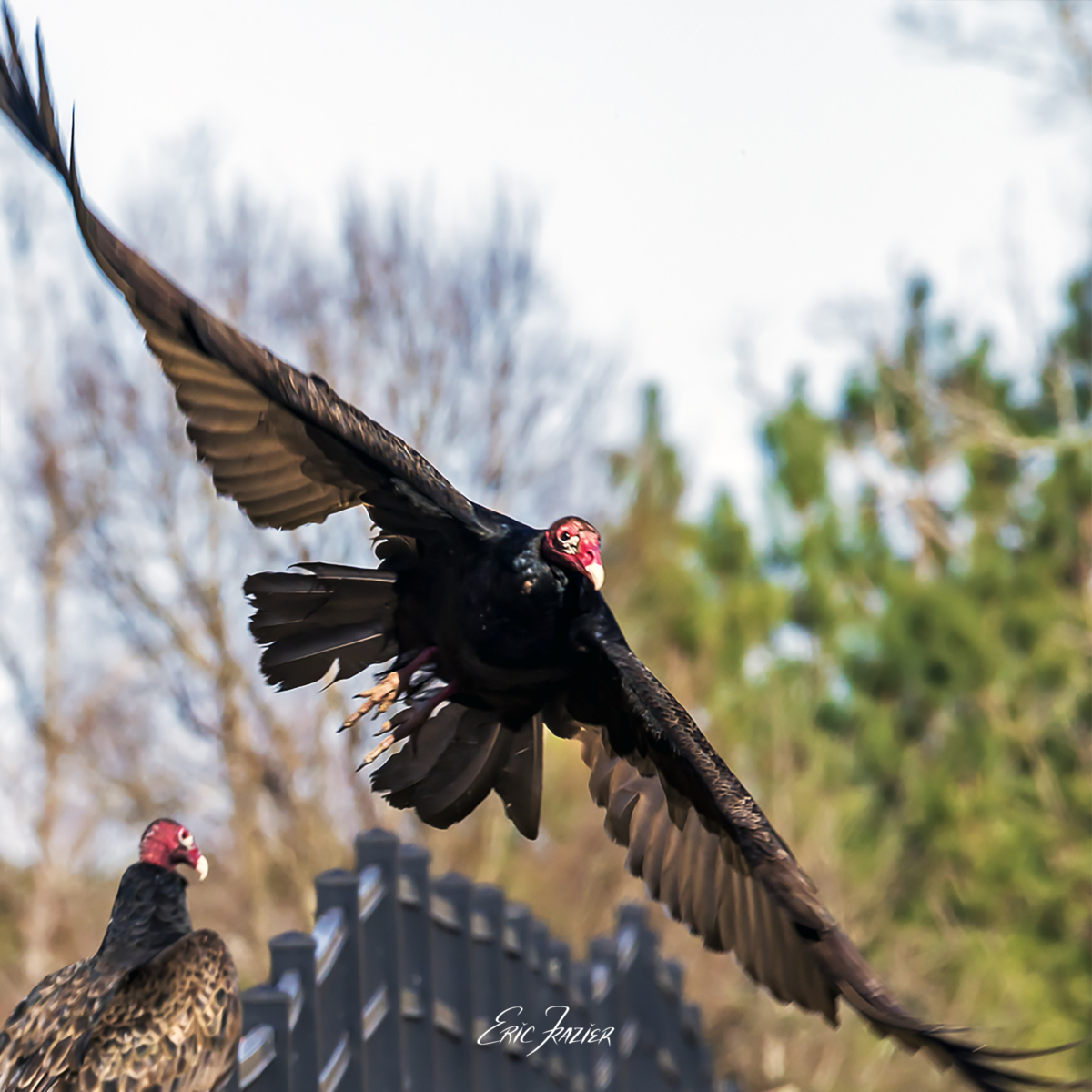
Their flight was short. Both landed near the pond’s spillway, where the ground was soggy from recent rains. They proceeded to hunt the way a robin might search for worms, raking and pecking the turf. In no time, one vulture turned up a large mole or vole. With a few head bobs and bill snaps, the rodent was in position to disappear in a single gulp. Luckily, I got a shot before it did.
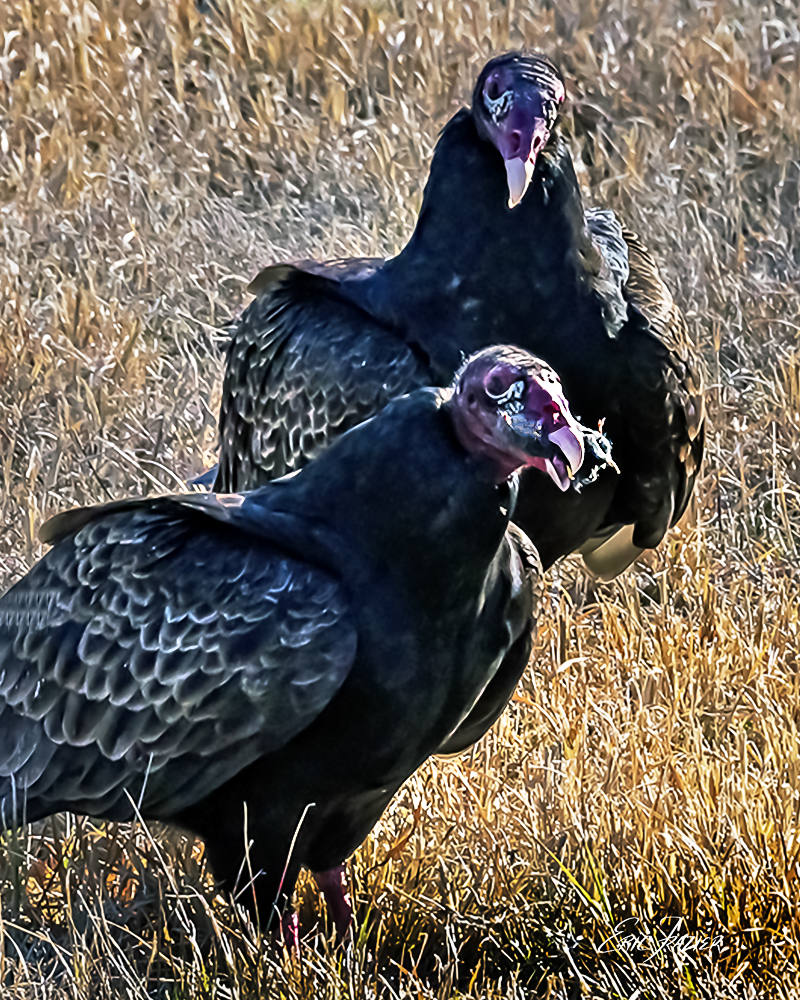
So, I had captured my first photo of a vulture hunting and eating prey, rather than scavenging roadkill. A rare sight. I felt pretty good. But the other vulture seemed quite miffed that the meal had not been shared. It charged at its partner, nipping at a wing, and the two spent a few moments chasing each other around.
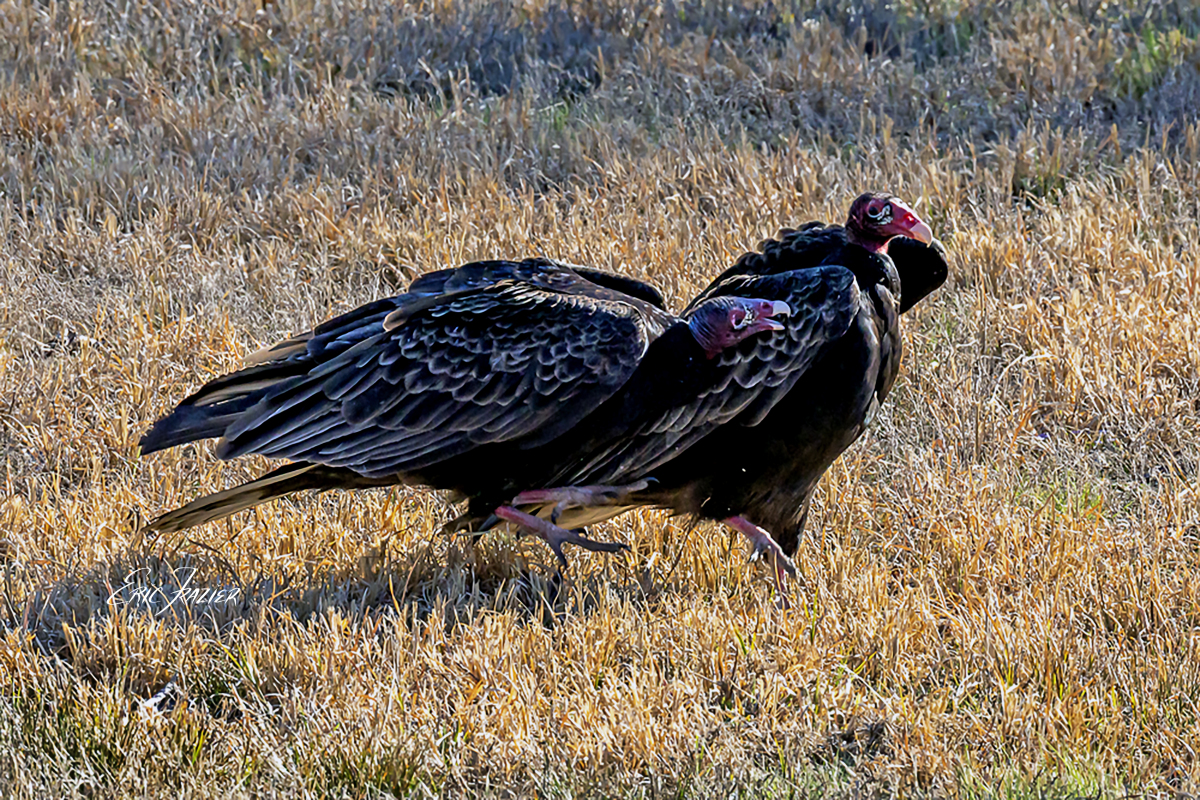
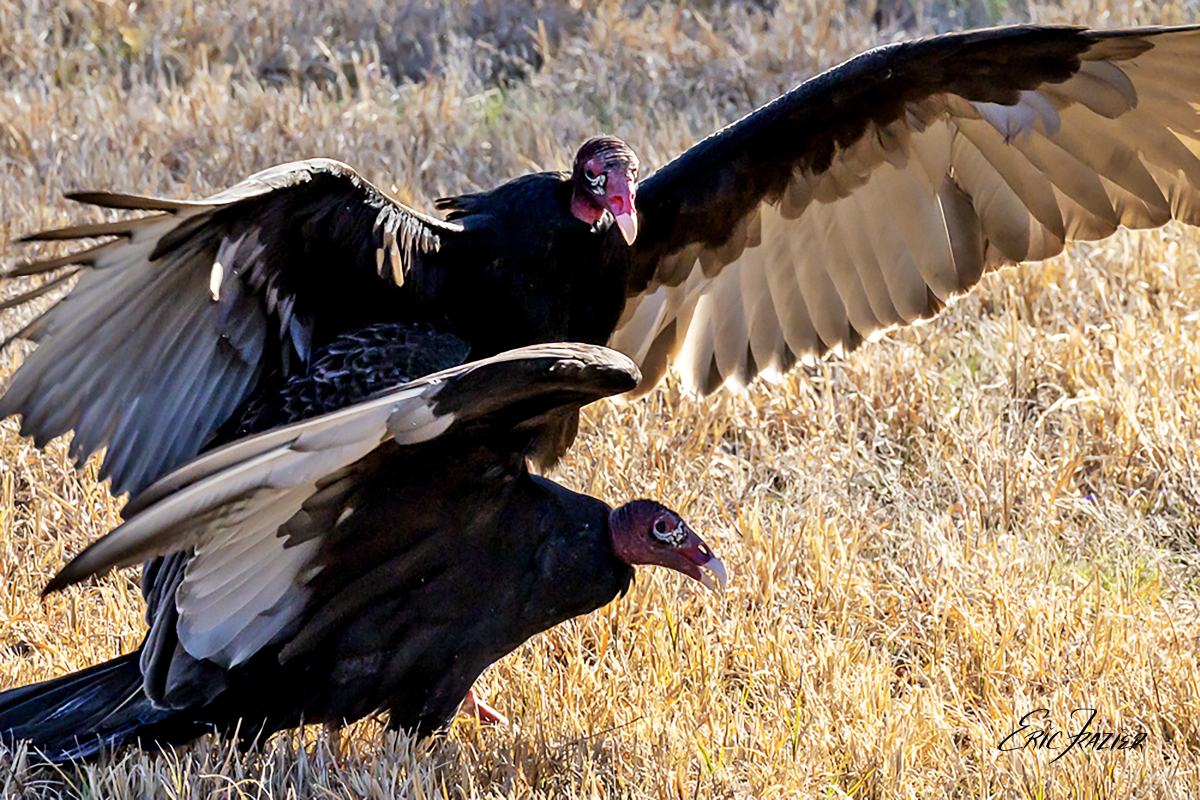
The kerfuffle passed, and when they spread their impressive wings to launch from the ground, they flew away together in the same direction. Soon, they were back in the air, riding the thermals in wobbly loops, putting those hideous snouts with their unrivaled sniffers to work in their never-ending search for the scent of dead food.
